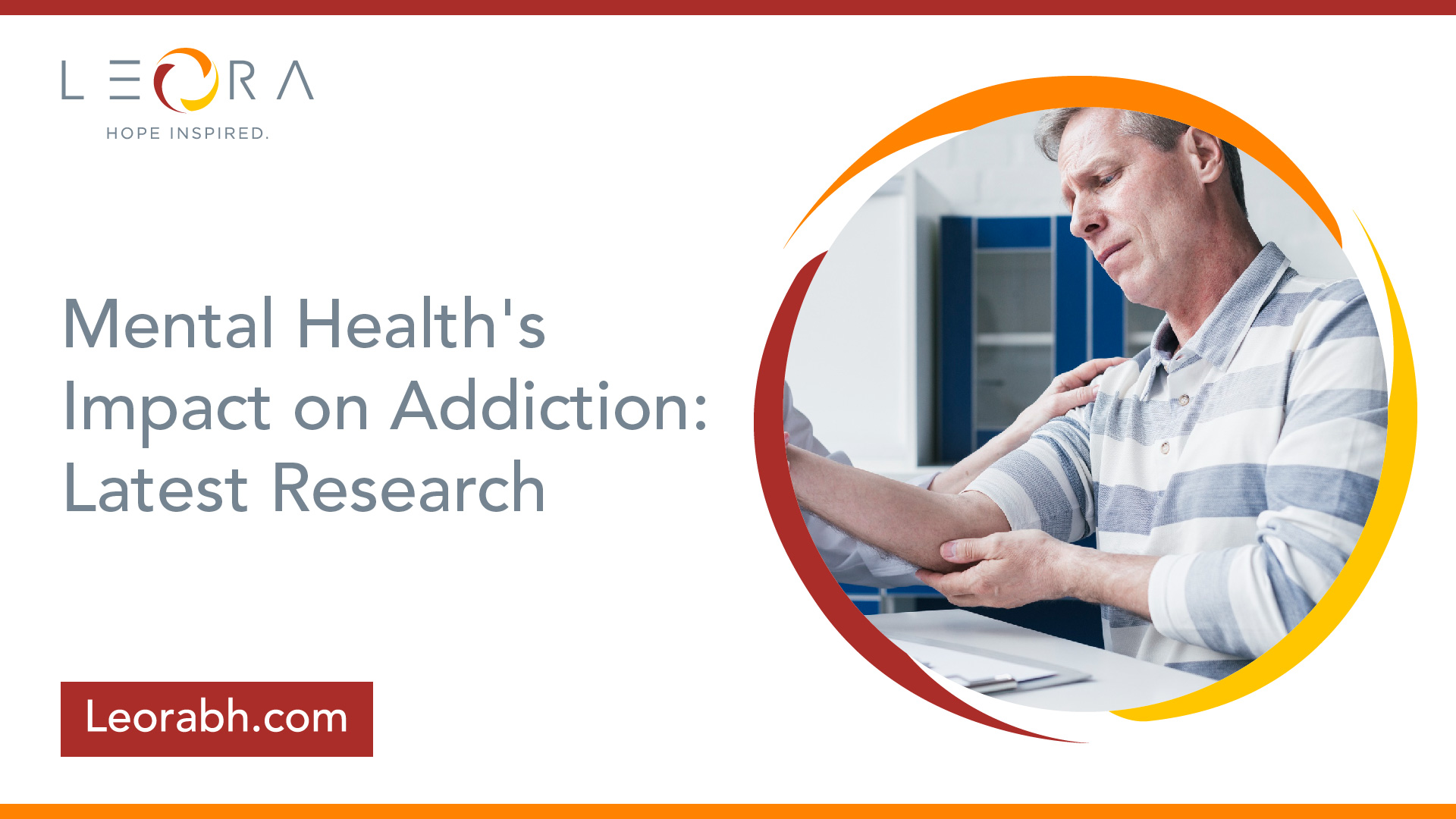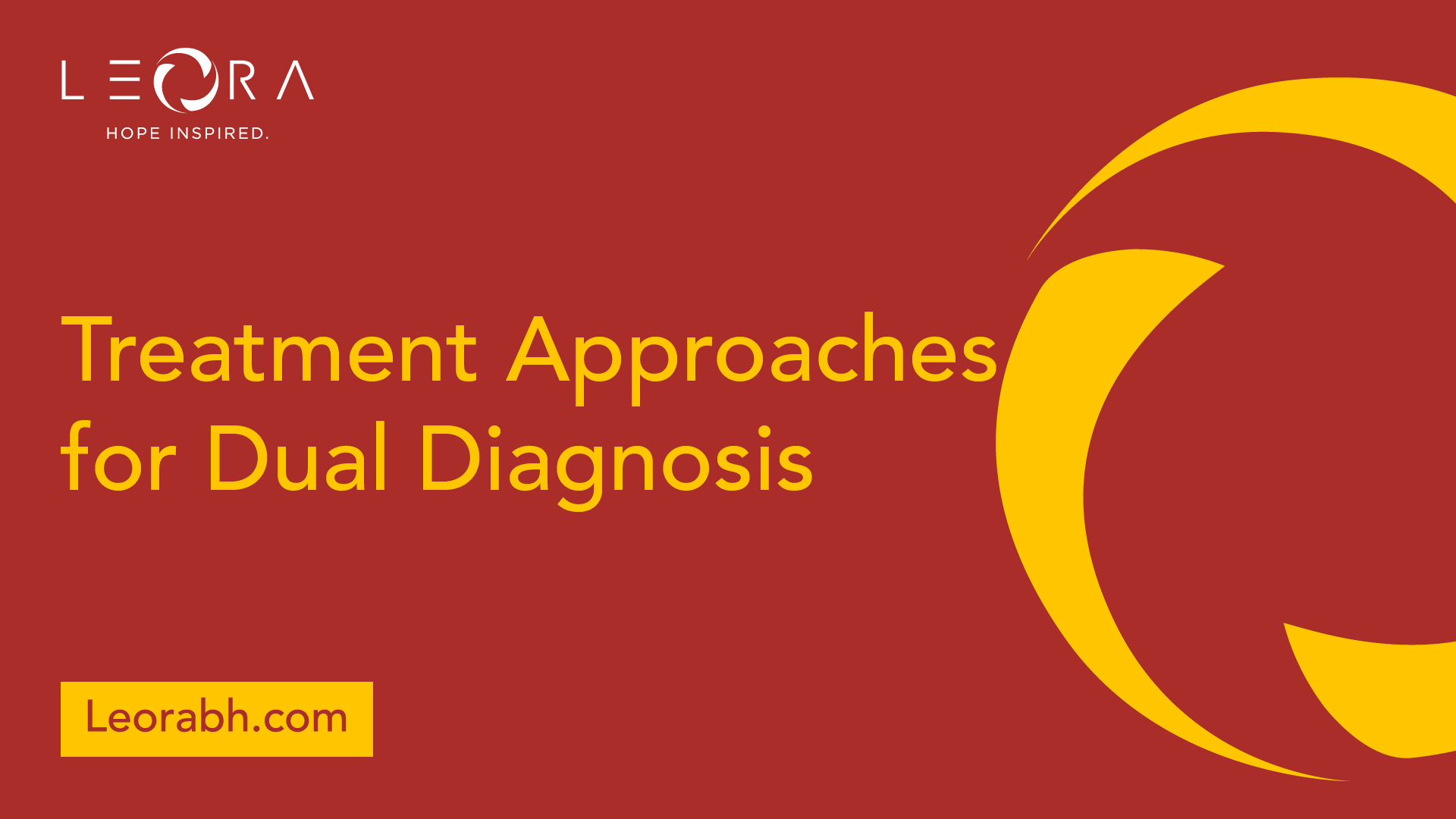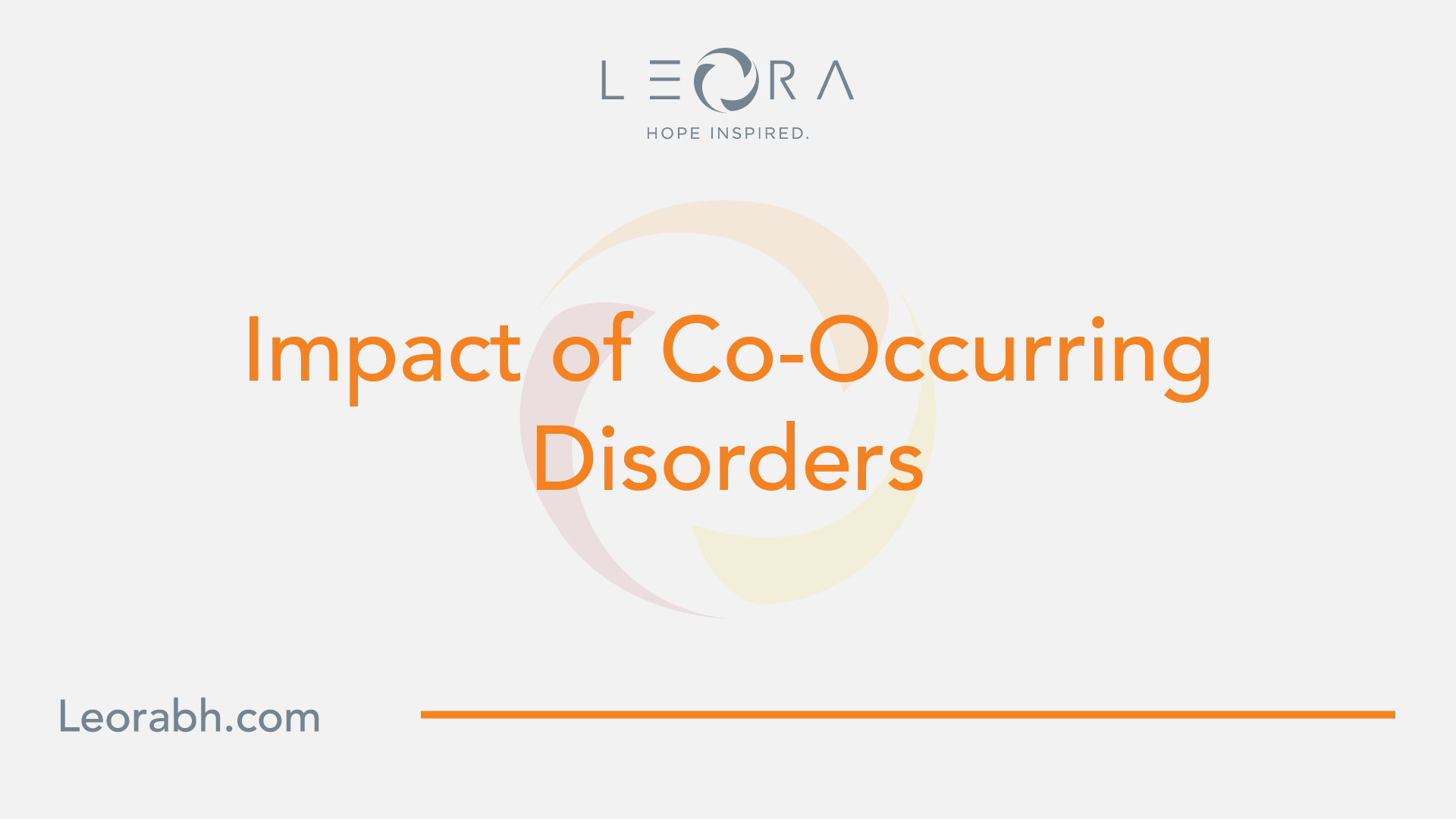Mental Health's Impact on Addiction: Latest Research
Discover the impact of mental health on addiction with the latest research. Unveil the connection and treatment options.

Understanding Co-Occurring Disorders
When it comes to mental health and addiction, there is often a complex interplay between the two. Individuals with mental health disorders are more likely to have substance use disorders, and vice versa. This co-occurrence of mental health and substance use disorders is known as co-occurring disorders or dual diagnosis.
Prevalence of Co-Occurring Disorders
According to the Substance Abuse and Mental Health Services Administration (SAMHSA), more than one in four adults living with serious mental health problems also has a substance use problem. Certain mental health problems are more frequently associated with substance use problems [1]. The co-occurrence of these disorders can complicate diagnosis, treatment, and overall well-being.
Symptoms of Substance Use Disorders
Symptoms of substance use disorders can manifest in various ways, including behavioral changes, physical changes, and social changes. These symptoms may vary depending on the specific substance being used and the individual's unique circumstances. Common symptoms can include:
- Behavioral changes: Increased secrecy, changes in social circles, engaging in risky behaviors, neglecting responsibilities, and experiencing difficulties with relationships.
- Physical changes: Changes in sleep patterns, weight loss or gain, deteriorating physical appearance, and frequent illnesses or infections.
- Social changes: Isolation from loved ones, withdrawing from social activities, loss of interest in previously enjoyed hobbies, and experiencing difficulties in school or at work.
It's important to note that substance abuse and mental health disorders are closely linked, although one doesn’t necessarily directly cause the other. Substance abuse can lead to prolonged psychotic reactions, exacerbate symptoms of depression and anxiety, and impact overall mental well-being. Moreover, individuals may turn to alcohol or drugs as a form of self-medication for undiagnosed mental health disorders or to cope with difficult emotions temporarily.
Addressing co-occurring disorders requires a comprehensive approach that takes into account both mental health and substance use. Integrated treatment, which combines therapy, medication, and support services, plays a crucial role in effectively managing these conditions. By addressing both aspects concurrently, individuals can receive the necessary support to navigate the challenges of co-occurring disorders and work towards recovery.

Treatment Approaches for Dual Diagnosis
When it comes to addressing individuals with co-occurring mental health disorders and substance use disorders, it is crucial to provide comprehensive and integrated treatment. Integrated treatment refers to an approach that simultaneously addresses both the mental health and substance use aspects of an individual's condition. This section will explore the importance of integrated treatment and rehabilitation options available for individuals with dual diagnosis.
Importance of Integrated Treatment
Integrated treatment is essential for individuals with co-occurring disorders, as it recognizes the interplay between mental health and substance use. Treating both disorders simultaneously leads to better outcomes and improved quality of life. Integrated treatment allows for a holistic approach that takes into account the unique needs and challenges faced by individuals with dual diagnosis. By addressing both mental health and substance use disorders, individuals can achieve lasting recovery and enhance their overall well-being.
Integrated treatment typically involves a combination of various interventions, including rehabilitation, medications, support groups, and talk therapy. Rehabilitation plays a significant role in helping individuals with dual diagnosis regain control over their lives. It provides a structured and supportive environment where individuals can receive specialized care tailored to their specific needs.
Rehabilitation Options
Rehabilitation options for individuals with dual diagnosis can vary depending on the severity of the conditions and individual preferences. Some common rehabilitation options include:
- Inpatient Rehabilitation: Inpatient rehabilitation, also known as residential treatment, involves individuals staying at a facility for a designated period. This intensive form of treatment provides a structured environment with 24/7 support and access to various therapies and interventions. Inpatient rehabilitation is recommended for individuals with severe dual diagnosis or those who require a higher level of care.
- Outpatient Rehabilitation: Outpatient rehabilitation offers flexibility for individuals who do not require 24/7 supervision. It allows individuals to receive treatment while living at home and continuing with their daily responsibilities. Outpatient programs vary in intensity, ranging from regular therapy sessions to intensive outpatient programs (IOPs) that provide more extensive support.
- Partial Hospitalization Programs (PHPs): PHPs are a form of day treatment where individuals attend treatment sessions for several hours a day, several days a week. These programs offer a structured and supportive environment while allowing individuals to return home in the evenings.
- Supportive Housing: Supportive housing programs provide individuals with a stable and safe living environment while receiving ongoing support and treatment. These programs may offer a range of services, including counseling, case management, and assistance with daily living skills.
It's important to note that the availability of rehabilitation options may vary depending on location. For individuals seeking the best mental health facilities in Columbus, Ohio or any other specific location, it's advisable to research local resources and consult with healthcare professionals for personalized recommendations.
By providing integrated treatment and offering a range of rehabilitation options, individuals with dual diagnosis can receive the comprehensive care they need to address both their mental health and substance use disorders. Integrated treatment, along with early detection and ongoing support, can lead to improved outcomes and a better quality of life for individuals with co-occurring disorders. For more information on how mental health disorders affect substance use, please refer to our article on how mental health disorders affect substance use.

Impact of Co-Occurring Disorders
When it comes to individuals with co-occurring disorders, the impact can be significant. Co-occurring disorders refer to the presence of both a mental health disorder and a substance use disorder. Let's explore two key aspects of the impact: hospitalization rates and the benefits of integrated treatment.
Hospitalization Rates
People with co-occurring disorders are more likely to be hospitalized compared to those with either a mental or substance use disorder alone, as highlighted by the Substance Abuse and Mental Health Services Administration. The presence of both conditions can exacerbate symptoms and increase the need for medical intervention. Hospitalization may be required for stabilization, detoxification, or addressing acute psychiatric crises.
Benefits of Integrated Treatment
Integrated treatment, which coordinates mental health and substance use interventions, has shown to be beneficial for individuals with co-occurring disorders. It involves addressing both disorders simultaneously, leading to a more comprehensive and effective recovery process. Integrated treatment recognizes the interconnectedness of mental health and substance use and acknowledges that treating one without addressing the other may yield limited results.
An integrated approach offers several advantages. It allows for a more complete understanding of the individual's unique needs and challenges, as mental health and substance use disorders often interact and influence each other. By targeting both disorders concurrently, integrated treatment can enhance outcomes and improve the overall quality of life for individuals with co-occurring disorders.
To achieve successful outcomes, integrated treatment often involves a combination of therapeutic approaches, such as psychotherapy, pharmacotherapy, and behavioral treatments. Cognitive-behavioral therapy strategies are frequently utilized to enhance interpersonal and coping skills, while motivational and functional recovery approaches are employed to support motivation and overall well-being.
By addressing both the substance use problem and the mental disorder simultaneously, integrated treatment provides a comprehensive and holistic approach to recovery. Long-term success in managing co-occurring disorders relies on obtaining treatment from the same provider or treatment team, ensuring a consistent and coordinated approach to care.
In summary, co-occurring disorders can have a significant impact on individuals' lives, necessitating hospitalization at times. However, integrated treatment approaches offer promising solutions by addressing both the mental health and substance use components simultaneously. By providing comprehensive care, integrated treatment aims to improve outcomes and enhance the overall well-being of individuals with co-occurring disorders.
Addressing Co-Occurring Disorders in Adolescents
When it comes to addressing mental health disorders and addiction in adolescents, it's important to recognize the high rates of co-occurrence and the influence of early drug use.
High Rates of Co-Occurrence
Research indicates that over 60 percent of adolescents in community-based substance use disorder treatment programs meet diagnostic criteria for another mental illness, highlighting the high rates of co-occurring mental illness among youth with substance use disorders. These co-occurring mental health disorders can include conduct disorder, major depression, attention-deficit/hyperactivity disorder (ADHD), and more.
It is crucial to address both the mental health disorder and the substance use disorder simultaneously, as untreated or undertreated mental health conditions can hinder the recovery process and increase the risk of relapse. Integrated treatment approaches that consider both the mental health and addiction components are essential for providing comprehensive care and improving outcomes.
Influence of Early Drug Use
Early drug use has been identified as a strong risk factor for the later development of substance use disorders and other mental illnesses in adolescents. However, it is important to note that this link does not necessarily imply causation. Instead, it may reflect shared risk factors, including genetic vulnerability, psychosocial experiences, and general environmental influences.
Research suggests that individuals with certain mental health disorders, such as bipolar disorder, who report being physically abused in childhood are at a greater risk of developing substance use disorders, particularly cannabis dependence. Childhood emotional and physical neglect are also associated with multiple substance use disorders, higher levels of aggression, suicidal behavior, and psychosis.
To effectively address co-occurring disorders in adolescents, a comprehensive approach is necessary. This may involve integrated treatment programs that incorporate evidence-based therapies, such as cognitive-behavioral therapy (CBT), dialectical behavior therapy (DBT), and motivational interviewing. These approaches aim to address both the mental health symptoms and the addiction simultaneously, providing support and teaching coping skills to manage both conditions.
By recognizing the high rates of co-occurrence and the influence of early drug use, healthcare professionals can better tailor treatment approaches to meet the unique needs of adolescents with co-occurring mental health disorders and addiction. Early intervention and comprehensive care are crucial in improving outcomes and promoting long-term recovery in this vulnerable population.
Genetic and Neurobiological Factors
Understanding the genetic and neurobiological factors that contribute to addiction is crucial in comprehending the complex nature of substance use disorders. Research has shown that both genetic contributions and neurobiological processes play significant roles in the development and progression of addiction.
Genetic Contributions to Addiction
Genetic vulnerabilities have a substantial impact on an individual's susceptibility to substance use disorders. Studies suggest that addiction has a heritable genetic component, with estimates ranging from 40% to 70%. Numerous genes are involved in the risk of addiction, each with varying effect sizes. The interplay between these genes contributes to an individual's overall genetic predisposition or protection from addictive disorders.
Research is ongoing to identify specific genes associated with substance use disorders and other mental illnesses. It is believed that an estimated 40-60% of vulnerability to substance use disorders can be attributed to genetics. Epigenetics, which refers to changes in gene activity not dependent on gene sequence, also plays a significant role in the neurobiology of addiction. Epigenetic modifications can be induced by environmental factors, stressors, and drug exposure, and they can either predispose individuals to addiction or provide protection against it.
Neurobiological Stages of Addiction
The neurobiology of addiction involves complex processes that occur in the brain. It is a multistage process that includes initiation, maintenance, escalation, and relapse. Environmental factors, genetic predisposition, and epigenetic influences all contribute to the development and progression of addiction.
The neurobiological stages of addiction involve various neurotransmitters and brain regions. Dopamine, a neurotransmitter involved in reward and motivation, plays a crucial role in addiction. Substance use can lead to an increase in dopamine release, reinforcing the behavior and creating a desire to seek the substance again.
Over time, repeated substance use can lead to changes in the brain's reward system, causing a dysregulation of dopamine signaling. This dysregulation results in a decreased ability to experience pleasure from natural rewards and an increased drive to seek and use the substance.
Other neurotransmitters, such as serotonin and glutamate, also play important roles in addiction. Serotonin is involved in mood regulation, and imbalances in serotonin levels can contribute to the development of addiction. Glutamate, an excitatory neurotransmitter, is involved in learning and memory processes that are crucial for the development of addiction-related behaviors.
Understanding the genetic and neurobiological factors involved in addiction provides valuable insights into the complexity of substance use disorders. Further research in these areas can help inform the development of more effective prevention and treatment strategies for individuals struggling with addiction.
Stress and Mental Health Disorders
Stress plays a significant role in both the development and exacerbation of mental health disorders and substance use disorders. The relationship between stress and addiction is complex, with stress often serving as a risk factor for both the initiation and maintenance of substance use. Additionally, the impact of stress on mental health cannot be overlooked.
Role of Stress in Substance Use
Exposure to stressors can lead to changes in brain circuits that control motivation, potentially increasing the risk of substance use disorders. Stress can trigger the release of stress hormones, such as cortisol, which can influence brain function and increase the vulnerability to addictive behaviors. The dysregulation of the brain's reward and motivation pathways, particularly the mesolimbic dopamine system, is implicated in substance misuse.
Research has shown that individuals experiencing chronic stress may turn to substances as a coping mechanism to alleviate negative emotions and temporarily relieve stress. However, this can lead to a vicious cycle, as substance use itself can further contribute to stress and exacerbate mental health symptoms.
Impact of Stress on Mental Health
Stress is a known risk factor for various mental disorders, including anxiety disorders, depression, and post-traumatic stress disorder (PTSD). Exposure to chronic or traumatic stress can significantly increase the likelihood of developing these mental health conditions. Stress can disrupt the balance of neurotransmitters in the brain, impair cognitive function, and contribute to the dysregulation of emotions.
It is important to address stress and develop healthy coping mechanisms to prevent the onset or worsening of mental health disorders. Mindfulness-based stress reduction and other stress-reducing techniques have shown benefits in reducing symptoms of depression, anxiety, and substance use disorders.
By recognizing the role of stress in both substance use and mental health disorders, integrated treatment approaches that address both aspects concurrently can be more effective in helping individuals recover. This integrated approach focuses on addressing the underlying causes of addiction, including stress and mental health issues, to promote lasting recovery.
To learn more about the intersection of mental illness and addiction, refer to our article on the intersection of mental illness and addiction.
References
Find Your Inner Light
Related Articles
Contact Us
Leora Behavioral Health offers a comprehensive addiction treatment programs to help you get your life back on track.
Our trained professionals will work with you to develop a personalized treatment plan that meets your unique needs. If you or someone you know is struggling with addiction, reach out to Leora Behavioral Health today.


.svg)





.svg)
.svg)
.svg)
.svg)